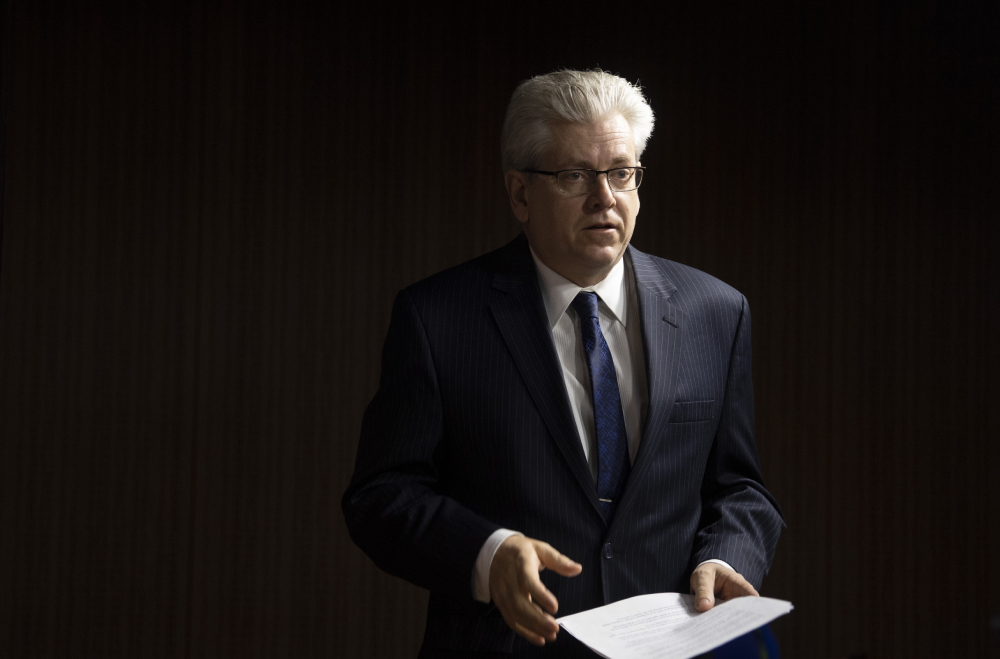Despite denials, the RCMP has been routinely using facial recognition technology since 2002, The Tyee has learned.
And the software continues to be used in British Columbia, the RCMP confirmed Monday.
Attention has been focused on the RCMP’s use of Clearview AI’s controversial facial recognition software, which uses a database of billions of images scraped from social media. The technology allows police forces — and individuals and companies — to upload a photo and see any matching images on the web, along with links to where they appeared.
But The Tyee has learned the RCMP has been using facial recognition software for 18 years.
“The Computerized Arrest and Booking System (CABS) has been in use at the RCMP for many years,” spokesperson Catherine Fortin said in a written response to emailed questions. “Currently, it is only being used by the RCMP in B.C.”
The technology is used to store and compare faces of “charged persons” and to create photo lineups, said Fortin.
When the RCMP bought the system, the supplier said it provided “increased efficiency of surveillance and investigation activities” and “the ability to identify an individual within very large databases of images in seconds.”
The RCMP did not respond to a question about how the use of the software could be reconciled with its previous claims it was not using facial recognition technology.
In July 2019, the RCMP told The Tyee it was not using such software.
Any technology on the “magnitude of a facial recognition system” would require approval from RCMP headquarters, a spokesperson said, and it had received no requests from units across the country.
The RCMP issued similar denials about its use of technology from Clearview AI.
In January, after reports said the company’s clients included Canadian police forces, The Tyee asked if the RCMP was using the technology. The force refused to confirm or deny whether it was a Clearview AI client. The RCMP “continues to monitor new and evolving technology,” it said in a statement.
The RCMP also issued statements denying it was using any facial recognition software. “The RCMP does not currently use facial recognition software,” it told the CBC.
But weeks later, when Clearview AI’s client list was hacked the RCMP’s story changed.
The RCMP said it had discovered seven units were using the technology.
The force told The Tyee it is now limiting use of Clearview AI technology to cases where grievous bodily harm may be imminent or for victim identification in child exploitation cases.
The RCMP was not alone. The Edmonton police department had also said it did not use facial recognition technology, only to confirm after the leak that it had been using Clearview AI’s technology. The Calgary police department made a similar reversal on previous claims. Vancouver police had also denied using the software, but confirmed after the leak that a detective had used the technology.
On Monday, NDP MP Charlie Angus called on the federal government to explain why the RCMP had denied using Clearview AI’s technology when several departments within the force were using it.
“This software that’s being used by the RCMP and police forces across the country is run by a U.S. company that has collected a database of billions of photos of Canadians,” he said. “Canadians have concerns and they deserve answers.”
“This is a serious compromise of people’s privacy in Canada.”
Earlier this year, Angus won support from MPs on the parliamentary ethics committee to investigate the situation.
Angus also repeated calls for a moratorium on the commercial, private and public sector use of the technology in public spaces.
“In the U.S., many municipalities are banning the use of facial recognition software like this,” he said. “The Liberal government should follow suit, at least until we know for a fact that no laws in Canada have been breached.”
Last May, San Francisco became the first U.S. city to ban the public use of facial recognition software.
The Office of the Privacy Commissioner of Canada has announced it would launch a joint investigation of the use of Clearview AI’s technology with privacy regulators in British Columbia, Quebec, and Alberta. ![]()
Read more: Rights + Justice, Federal Politics, BC Politics
















Tyee Commenting Guidelines
Comments that violate guidelines risk being deleted, and violations may result in a temporary or permanent user ban. Maintain the spirit of good conversation to stay in the discussion.
*Please note The Tyee is not a forum for spreading misinformation about COVID-19, denying its existence or minimizing its risk to public health.
Do:
Do not: